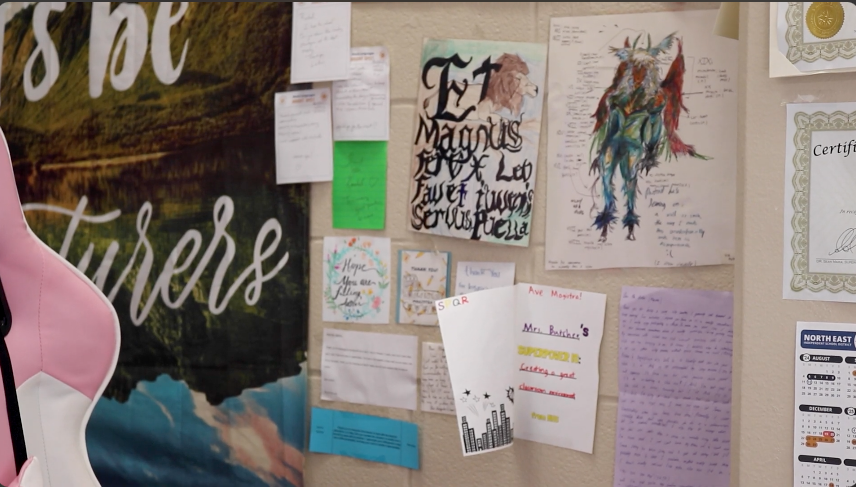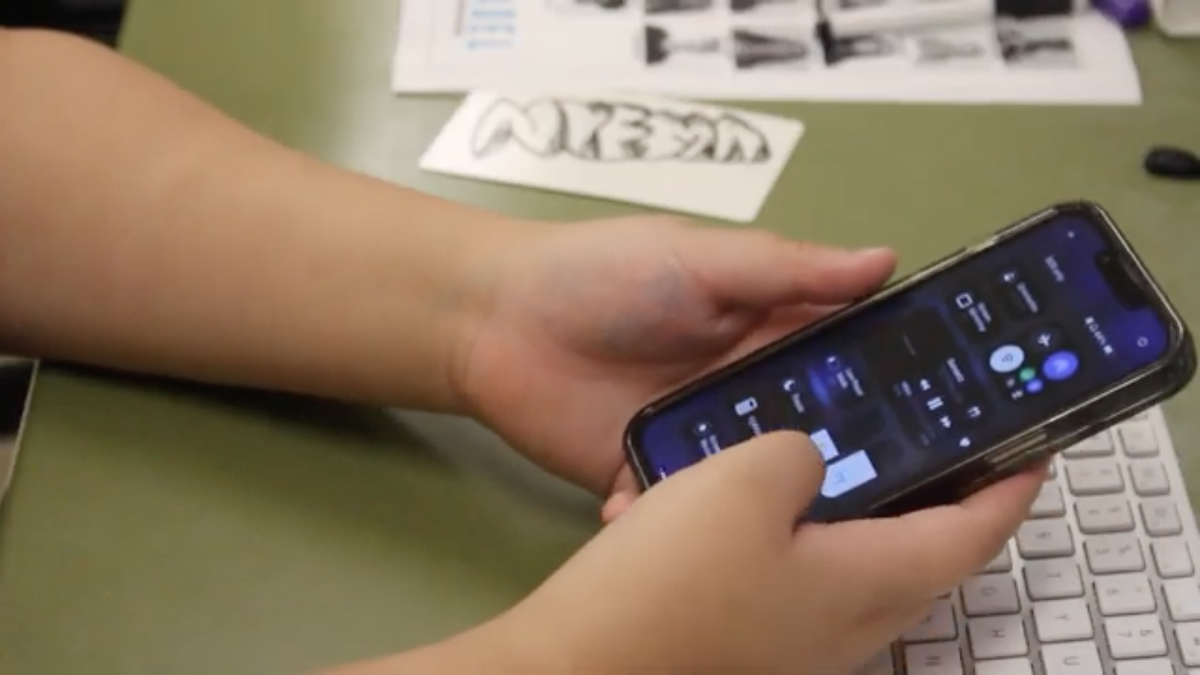by Karina Correa | tech editor
With the exam exemption window only days away from opening, there are some things that are undefined or confusing to some students, like getting a “U” on Skyward and not being able to exempt because of it.
“It means unsatisfactory. So, the students probably did something that repeatedly, behaviorally they’ve been called out on or they’ve had to have a parent contact or something like that,” US government and psychology teacher Patricia Castellanos said.
Teachers cannot give a “U” before talking with the student and/or their parents.
“So teachers, before they can give those [U’s], are required to talk to parents to work on those steps, but I think it’s a lot like any good system. Three times or four times or a continual issue. I find that most teachers do not use the U,” assistant principal Sara Moseley said. “Really, I don’t see very many of those at all, but it is something more about what’s happening in the classroom, and that goes back to classroom management.”
There aren’t black and white guidelines about what can earn a student a “U,” which means often this is left up to teacher discretion.
“Yeah, I think the teacher just determines based on how the students are behaving. If it’s not satisfactory then they go down to one in between [N – needs improvement] and then there’s unsatisfactory. That means they’ve really done something you know they don’t deserve to get the exemption,” French teacher Kacee Saylors said. “Sometimes, even with good classroom management, we still have a student that might have a hard time, so those aren’t used very often I find. Usually students get the S’s or the E’s, but it’s teacher discretion,” Moseley said.
Obviously, some teachers have different ideologies of what behaviors deserve a “U.”
“For me personally, it’s when students are misbehaving during class, not following instructions consistently, not turning in their work, not participating, behavior issues with other students,” science teacher Kali Sanchez said.
“Maybe talking back to the teacher, refusing to give up their phone, skipping class, using profanity, things like that,” Castellanos said.
Citizenship score has nothing to do with grades, it only represents student behavior. Even so, if a student gets a “U,” they can’t be exempt.
“You can get bad grades and not get an “U.” You can be satisfactory or a good student, but if you lie all the time and that’s why you have a zero or a really bad grade then of course that’d be why you have a ‘U,’ because you lie all the time and use excuses,” Forensics teacher Brandi Haynes said.
But even Haynes echoes what Moseley said – that she rarely awards a ‘U’ in conduct.
“[It’s] kinda hard to get a ‘U’ and I think it’s important that teachers separate a student who is unsuccessful academically from a student who is behaviorally unsatisfactory. Not a lot of teachers know the differences,” Haynes said.
Teachers have said that the first step is to curtail problems when they are occurring the classroom.
“I have not [given a ‘U’]; I have great students. I don’t have any behavioral problems,” Castellanos said.
“I have not because usually I try to work with them, you know, correct behaviors that doesn’t continue,” Saylors said.
As unlikely as it seems to get marked as unsatisfactory on Skyward, there are some teachers who have been through the process of giving a student a “U.”
“I have and it was because a student was acting just as I said, very defiant, not doing their work. There was no way they were being exempted anyways, but I just wanted it to be known that they were being defiant and disrespectful towards other students in class so I went with a ‘U,’” Sanchez said.
“Yeah, just the constant talking back, excuses, like you’ve asked nicely, and they’re just still rude,” Haynes said.
The privilege of exempting a class can be taken away if a student is repeatedly misbehaving.
“Being able to exempt a final is a privilege, and if you have been slacking off and causing problems in class, why would you be having that privilege or being able to exempt?” Sanchez said.
If a student is having troubles it would be best to let a counselor or AP know so it can be resolved before any “U’s” are added or any behavioral consequences occur.
“If there’s a personality conflict or something like that, or somebody feels like something is unfair, those are often those parent-teacher-student conversations. So, whenever those concerns come to me, we sit down with all parties and try to resolve and figure things out, because you can’t get along with everyone,” Moseley said. “We try real hard. Kids try real hard too, and their best might look like this, but it’s our responsibility as the adults to try to help resolve that. If a kid ever feels that way, bring it up to mom, dad – those are our advocates, or a counselor, an AP. That way we can look into it and try to resolve that, so it doesn’t feel unfair.”








